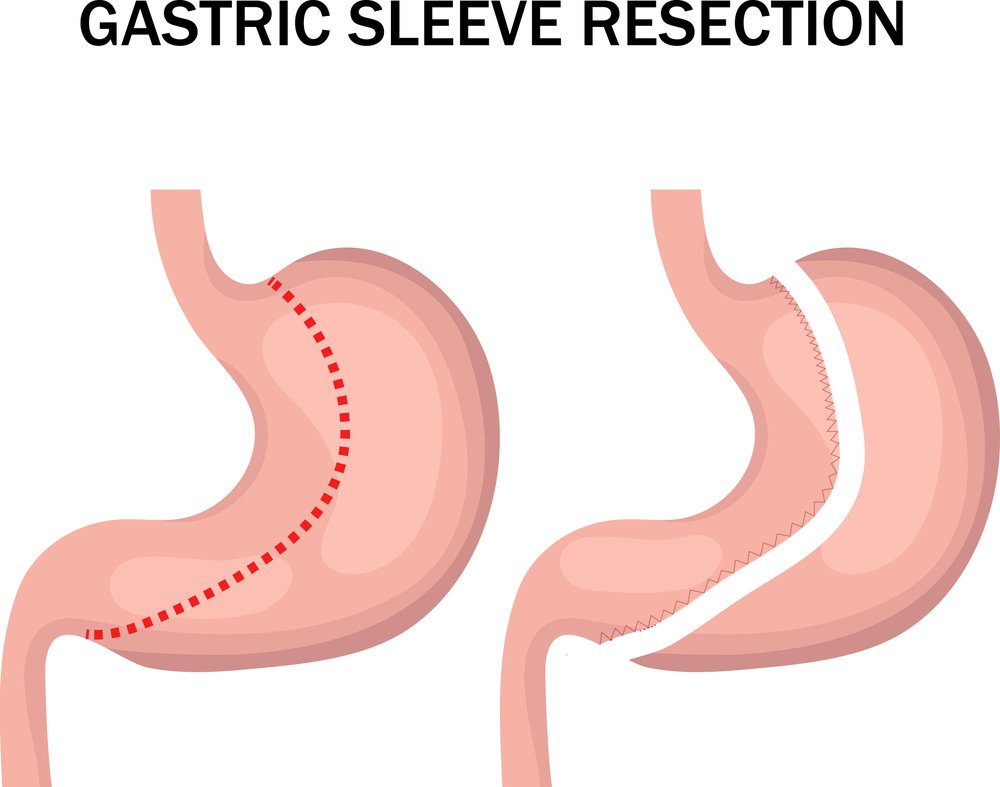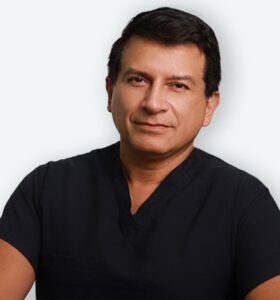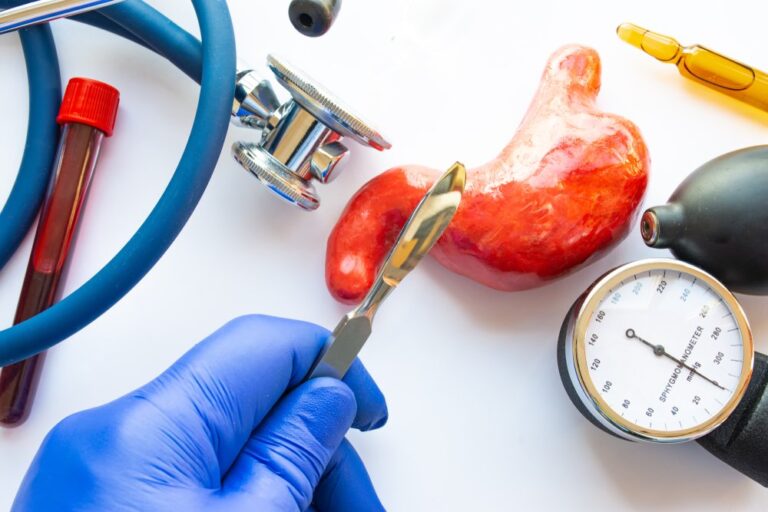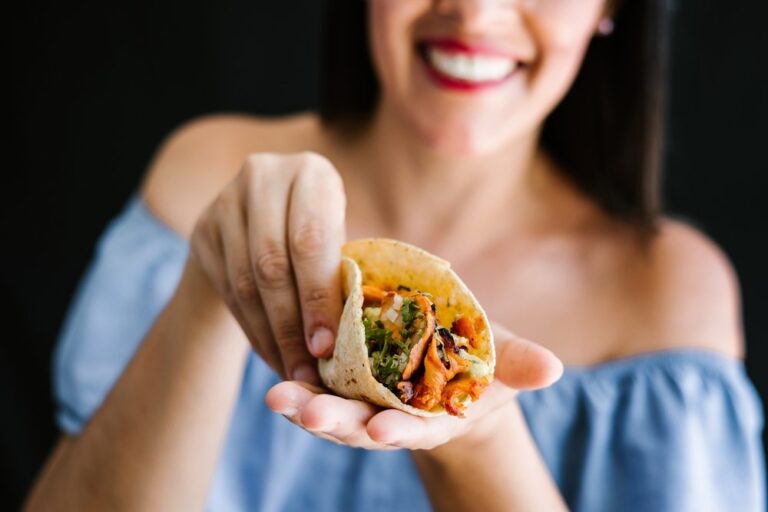After undergoing a gastric sleeve surgery, it’s generally advisable to avoid chewing gum for a period of time. Can you chew gum after gastric sleeve? Chewing gum can introduce excess air into the stomach, which can cause discomfort and bloating, especially during the early stages of recovery. Here’s why:
- Swallowing air: Chewing gum can cause you to swallow air, which can lead to bloating, discomfort, and increased pressure on the stomach. This can be especially problematic during the initial healing phase after surgery when your digestive system is still adjusting.
- Hunger and portion control: Chewing gum can stimulate your appetite and may increase your cravings for food. One of the goals after gastric sleeve surgery is to maintain portion control and make healthy eating choices. Chewing gum may interfere with this objective by triggering unnecessary hunger cues.
- Risk of complications: Chewing gum requires repetitive jaw movements, which can strain the surgical area and potentially increase the risk of complications, such as stretching or irritation of the stomach sleeve.
It’s important to follow the specific guidelines provided by your surgeon or healthcare team regarding diet and activity after gastric sleeve surgery. They will give you personalized instructions based on your individual needs and recovery progress. They may advise against chewing gum for a certain period of time, typically during the early post-operative phase.
Get a $1000 Off on Gastric Sleeve in Miami
What Is the Recommended Diet After Gastric Sleeve Surgery?
After gastric sleeve surgery, the recommended diet typically progresses through several phases to allow your stomach to heal and adjust to its new size. Here is a general outline of the post-surgery diet stages:
- Clear liquid diet: In the first few days after surgery, you will be limited to clear liquids such as water, broth, sugar-free gelatin, and herbal tea. This phase helps maintain hydration and allows your stomach to heal.
- Full liquid diet: Gradually, you will transition to full liquids, including protein shakes, low-fat yogurt, creamed soups, and pureed foods. This phase provides more nutrition while still being gentle on your stomach.
- Pureed diet: Once your surgeon approves, you can start introducing pureed foods with a smooth consistency. This includes mashed fruits, vegetables, lean ground meats, and cottage cheese. Be sure to avoid foods with chunks or coarse textures.
- Soft diet: After a few weeks, you can progress to a soft diet, incorporating foods that are easy to chew and swallow. This may include soft-cooked vegetables, tender meats, scrambled eggs, and canned fruits.
- Regular diet: Eventually, you will transition to a regular, balanced diet. Focus on consuming smaller portions, chewing food thoroughly, and making nutritious choices. Include lean proteins, whole grains, fruits, vegetables, and healthy fats.
Throughout the different diet phases, it’s important to follow your surgeon’s specific guidelines regarding portion sizes, nutrient intake, and meal frequency. They will provide personalized recommendations based on your individual needs and progress.

Foods and Beverages to Avoid in the Early Post-Surgery Phase
During the early post-surgery phase after gastric sleeve surgery, it’s important to avoid certain foods and beverages to support healing and prevent complications. Here are some examples of foods and beverages to avoid:
- Carbonated beverages: Avoid carbonated drinks such as soda, sparkling water, and carbonated fruit juices. These can introduce gas into your stomach, causing discomfort and stretching the stomach pouch.
- Sugary foods and beverages: Stay away from sugary foods and drinks, including candy, cakes, cookies, sweetened beverages, and desserts. These can contribute to weight gain and may cause dumping syndrome, a condition characterized by rapid emptying of the stomach contents into the small intestine.
- High-fat foods: Limit your intake of high-fat foods such as fried foods, greasy snacks, and fatty cuts of meat. These can be difficult to digest and may cause gastrointestinal discomfort.
- Tough or fibrous meats: Avoid tough or fibrous meats, such as steak, which can be challenging to chew and digest during the early stages of recovery. Opt for lean and tender protein sources instead, like skinless poultry or fish.
- Hard and crunchy foods: Stay away from hard and crunchy foods like raw vegetables, nuts, seeds, and chips. These can irritate the stomach lining and may be difficult to tolerate during the initial healing period.
- Alcoholic beverages: It’s recommended to avoid alcohol during the early post-surgery phase as it can be dehydrating, interfere with wound healing, and have an intensified effect due to changes in metabolism after surgery.
Remember to follow the specific dietary guidelines provided by your surgeon or registered dietitian. These recommendations may vary based on individual circumstances and recovery progress. As you progress through the different phases of the diet, you’ll gradually reintroduce these foods under professional guidance.
Can You Chew Gum After Gastric Sleeve Surgery?
After undergoing gastric sleeve surgery, it is generally recommended to avoid chewing gum for a period of time. Here’s why:
- Swallowing air: Chewing gum can cause you to swallow air, which can lead to bloating, discomfort, and increased pressure on the stomach. This can be especially problematic during the initial healing phase after surgery when your digestive system is still adjusting.
- Hunger and portion control: Chewing gum can stimulate your appetite and may increase your cravings for food. One of the goals after gastric sleeve surgery is to maintain portion control and make healthy eating choices. Chewing gum may interfere with this objective by triggering unnecessary hunger cues.
- Risk of complications: Chewing gum requires repetitive jaw movements, which can strain the surgical area and potentially increase the risk of complications, such as stretching or irritation of the stomach sleeve.
It’s important to follow the specific guidelines provided by your surgeon or healthcare team regarding diet and activity after gastric sleeve surgery. They will give you personalized instructions based on your individual needs and recovery progress. They may advise against chewing gum for a certain period of time, typically during the early post-operative phase.
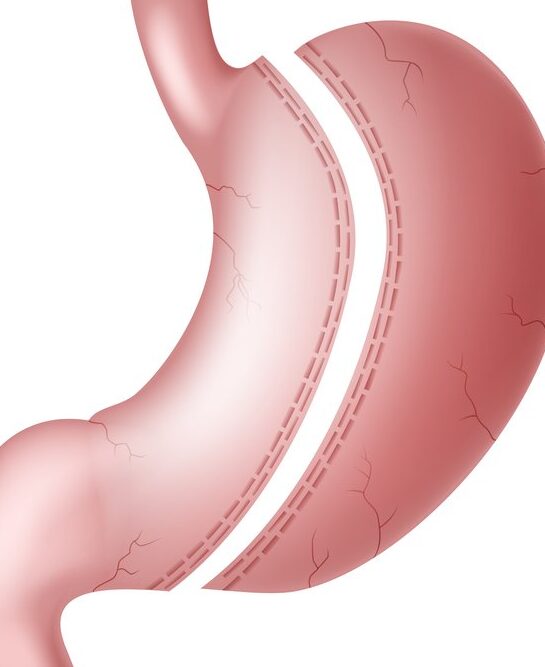
Potential Risks and Concerns Associated with Chewing Gum
Chewing gum, while generally considered safe for most people, can pose certain risks and concerns, especially in specific situations. Here are some potential risks and concerns associated with chewing gum:
- TMJ (Temporomandibular Joint) disorder: Excessive or prolonged chewing can put strain on the jaw joints and muscles, potentially leading to TMJ disorder. This condition can cause jaw pain, headaches, and difficulty in opening and closing the mouth.
- Dental issues: Chewing gum that contains sugar can increase the risk of dental problems such as tooth decay and cavities. Even sugar-free gum may contain ingredients like artificial sweeteners, which may have a laxative effect if consumed in excess.
- Gastrointestinal issues: Chewing gum can stimulate the production of stomach acid, which may be problematic for individuals with conditions like acid reflux or gastroesophageal reflux disease (GERD). Excessive gum chewing can also contribute to bloating, gas, and indigestion.
- Jaw muscle fatigue: Continuous chewing can tire the jaw muscles, leading to discomfort, fatigue, and muscle tightness. This can be particularly concerning for individuals with pre-existing jaw issues or those who tend to clench or grind their teeth.
- Choking hazard: Chewing gum can pose a choking hazard, especially for young children or individuals with swallowing difficulties. It’s crucial to exercise caution and avoid giving gum to those at risk.
It’s important to consider these risks and concerns when deciding whether or not to chew gum. If you have specific dental or jaw concerns, it’s advisable to consult with your dentist or healthcare provider for personalized advice.
Considering Alternatives for Oral Stimulation and Fresh Breath
If you’re looking for alternatives to chewing gum for oral stimulation and fresh breath, there are a few options you can consider:
- Sugar-free mints or lozenges: Opt for sugar-free mints or lozenges that are specifically designed to freshen breath. Look for products that are sweetened with non-sugar alternatives like xylitol.
- Mouth rinses: Use alcohol-free mouth rinses that are specifically formulated to freshen breath. These can help eliminate odor-causing bacteria in the mouth and provide a fresh feeling.
- Breath strips: Breath strips are thin, dissolvable films that can be placed on the tongue. They provide a burst of freshness and can be a convenient option for freshening breath on the go.
- Hydration: Drinking plenty of water throughout the day helps keep the mouth moist and can help wash away bacteria and food particles, reducing the risk of bad breath.
- Oral hygiene routine: Maintain a consistent oral hygiene routine by brushing your teeth at least twice a day with a toothpaste containing fluoride and using a soft-bristled toothbrush. Don’t forget to clean your tongue as well, as it can harbor bacteria that contribute to bad breath.
- Sugar-free breath freshening sprays: Sugar-free breath sprays are designed to freshen breath quickly and conveniently. Look for sprays that are sugar-free and contain natural breath-freshening ingredients.
Remember to consult with your healthcare provider or dentist for personalized recommendations based on your specific needs and any post-surgery considerations.
The Importance of Following Dietary Guidelines for Optimal Results
Following dietary guidelines after gastric sleeve surgery is crucial for achieving optimal results. Here’s why it’s important:
- Weight loss and maintenance: Gastric sleeve surgery helps reduce the size of your stomach, restricting the amount of food you can consume. By following the recommended dietary guidelines, you can ensure that you’re consuming nutrient-dense foods in appropriate portions. This promotes weight loss and helps maintain a healthy weight in the long term.
- Nutritional adequacy: After surgery, your body may have increased nutrient needs or require specific supplements. Following the dietary guidelines ensures that you’re getting the necessary nutrients to support healing, prevent nutrient deficiencies, and maintain overall health.
- Promoting healing and recovery: The right diet can aid in the healing process and minimize complications. Following the guidelines helps your body heal properly by providing the necessary nutrients and avoiding foods that may hinder the healing process or cause discomfort.
- Adaptation to a new lifestyle: Gastric sleeve surgery is not just a physical intervention; it also requires adopting a new lifestyle and relationship with food. Following the dietary guidelines helps establish healthy eating habits, portion control, and mindful eating, which are essential for long-term success.
- Prevention of complications: Following dietary recommendations reduces the risk of post-surgery complications such as dumping syndrome, nutritional deficiencies, and gastrointestinal issues. By avoiding certain foods and adopting a balanced diet, you can minimize the chances of experiencing these complications.
- Collaboration with healthcare professionals: Following the guidelines allows you to work closely with your healthcare team, including your surgeon and dietitian. They can monitor your progress, address any concerns, and provide personalized advice to optimize your results.
Remember, everyone’s dietary needs may vary, and it’s important to consult with your healthcare team for specific dietary guidelines tailored to your individual circumstances. They will provide you with comprehensive guidance based on your progress, medical history, and nutritional requirements.
References:
- U.S. National Library of Medicine. (2020). Gastric Sleeve Surgery. Retrieved June 6, 2020
- Healthline. (2022). Diet After Gastric Sleeve Surgery: What to Eat and Avoid. Retrieved June 6, 2022

